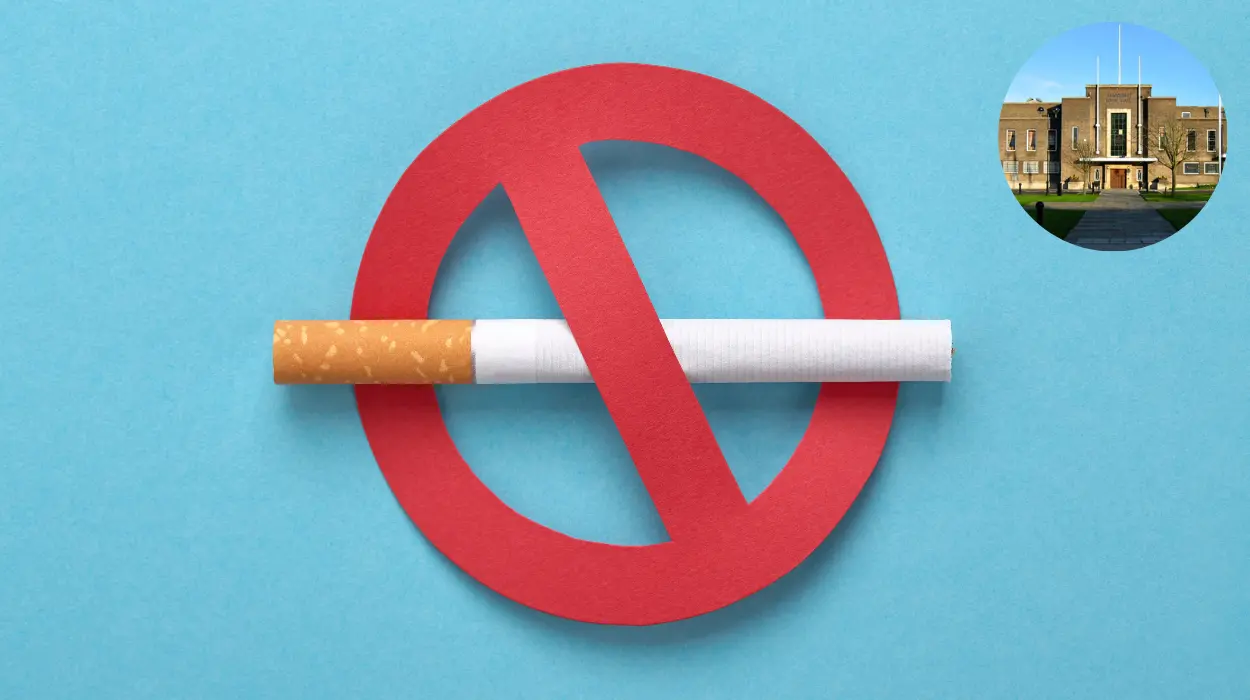Key Points:
- Havering Council’s Cabinet has approved a five-year Tobacco Harm Reduction Strategy.
- The strategy aims to make Havering smoke-free by 2030, in line with national goals.
- Focus will be on vulnerable groups: people with mental health conditions, substance addiction, and manual workers.
- A recent survey revealed 12% of children aged 12–15 in Havering have tried vaping.
- Around 480 children start smoking every year in the borough.
- Approximately 32,500 adults smoke in Havering, spending an estimated £78.5 million per year—or about £2,400 per person.
- Free stop smoking services are available locally, including Varenicline at selected pharmacies.
- Enforcement will be strengthened against illegal tobacco and vape sales.
- The Council will collaborate with parents, schools, and young people to raise awareness of vaping risks.
- Councillor Gillian Ford highlighted the social and health impacts of smoking on individuals and families.
Havering Council launches five-year strategy to cut smoking and youth vaping. As reported by The Havering Daily on 13 June 2025, Havering Council has officially adopted a comprehensive five-year Tobacco Harm Reduction Strategy designed to lower smoking rates and address the rising use of vapes, especially among young residents. The new policy, developed in partnership with local organisations, is intended to support the Government’s ambition of creating a smoke-free society by 2030.
- Key Points:
- What does the new strategy aim to achieve?
- How serious is youth vaping in Havering?
- How much do smokers in Havering spend annually?
- What health and social impacts does smoking have on residents?
- What support is available for those who want to quit smoking?
- Will there be stronger enforcement against illegal vape and tobacco sales?
- How does this strategy fit with national public health goals?
- What are the long-term expectations?
- Why is this strategy considered urgent and necessary?
- What’s next for residents?
What does the new strategy aim to achieve?
The strategy, effective from 2024 to 2029, has four core objectives:
- Reduce adult smoking rates across Havering, particularly in vulnerable groups.
- Strengthen enforcement against the illegal sale and marketing of tobacco and vape products.
- Lower youth initiation into smoking and vaping through education and support.
- Improve community health by reducing exposure to harmful substances and promoting smoke-free environments.
According to The Havering Daily, the Council will target communities that face the greatest health inequalities linked to smoking, including manual workers and people with mental health challenges or addiction.
How serious is youth vaping in Havering?
The Havering Daily cited findings from a local youth wellbeing survey revealing that 12% of children aged 12 to 15 have experimented with vaping. This figure reflects national concerns about the increasing popularity of vaping among minors. Additionally, the report found that approximately 480 children in Havering take up smoking each year.
In response, the Council intends to intensify collaboration with parents, schools, and youth organisations to educate children on the potential dangers of vaping, which, while less harmful than smoking, still raises long-term health concerns.
How much do smokers in Havering spend annually?
The Council estimates that Havering’s 32,500 adult smokers collectively spend £78.5 million each year on smoking and vaping products, which breaks down to approximately £2,400 per person. These figures underline the substantial financial burden smoking places on individuals and households.
What health and social impacts does smoking have on residents?
As quoted by The Havering Daily, Councillor Gillian Ford, Cabinet Member for Adults and Wellbeing, stated:
“Smoking is the leading cause of preventable ill health and early death. It remains the primary cause of many illnesses such as cancer, heart and lung disease.
It also has a huge social impact; it causes loss of income and working days due to illness, and results in many residents needing medical treatment and care in later life, which puts pressure on local health services. It is however not just the smoker that suffers, as it places family members at risk of ill health and loss of family income.”
She emphasised the Council’s commitment to “show the many benefits of quitting” by expanding access to free support services and making smoking less visible in the borough.
What support is available for those who want to quit smoking?
As reported by The Havering Daily, a range of free stop smoking services are already accessible across the borough, including pharmacy-based support. In some locations, residents can access Varenicline, a clinically approved medication that helps reduce nicotine cravings.
The Council aims to increase public awareness of these services and enhance their availability, especially among high-risk populations.
Will there be stronger enforcement against illegal vape and tobacco sales?
Yes. According to The Havering Daily, part of the five-year plan includes robust enforcement measures targeting illegal marketing, distribution, and sale of tobacco and vaping products. These efforts are intended to protect vulnerable consumers and limit children’s access to harmful substances.
This aligns with national efforts to tighten regulations on vaping, including anticipated legislation to ban disposable vapes, which is expected later in 2025.
How does this strategy fit with national public health goals?
The strategy supports the Government’s wider ambition of achieving a smoke-free England by 2030. It combines evidence-based interventions, such as behavioural support and medical aids, with public education, environmental controls (like smoke-free areas), and stricter regulation of harmful products.
The policy also builds on community consultation conducted earlier this year, which invited local residents to share feedback and priorities around tobacco control, as previously reported by The Havering Daily and Havering Council’s news portal.
What are the long-term expectations?
The Council anticipates that the new strategy will lead to:
- A significant reduction in smoking prevalence across all age groups.
- Fewer children taking up vaping or smoking.
- Better health outcomes for residents in the long term.
- Lower demand for health and care services linked to smoking-related conditions.
- Financial relief for residents burdened by smoking-related expenses.
Why is this strategy considered urgent and necessary?
Smoking is still the UK’s leading cause of preventable death, contributing to chronic diseases such as cancer, stroke, and respiratory illness. According to The Havering Daily, the Council stressed that beyond health, smoking deeply affects economic stability, family wellbeing, and workforce productivity—placing long-term pressure on public services.
With the rise of vaping among young people, the Council says now is the time to act with a comprehensive, localised approach that balances education, support, and regulation.
What’s next for residents?
Residents are encouraged to take advantage of the free stop smoking support available and engage with local campaigns aimed at reducing the visibility and appeal of smoking and vaping. Further updates on the strategy’s rollout and enforcement initiatives are expected to be shared by the Council in the coming months.



